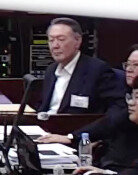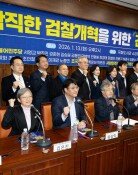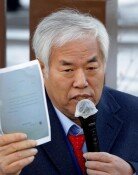1 in 3 SNU Research Institutes Receive Failing Grades
1 in 3 SNU Research Institutes Receive Failing Grades
Posted October. 02, 2007 03:05,
A comprehensive evaluation of the performance of research centers at Seoul National University (SNU) in the last two years conducted by the Office of Research at SNU showed that 31.6 percent, or 18 of them, scored below 60 out of 100, and more than half scored under 70. Only three (5.3 percent) centers made it above 90, and a disappointing 24.6 percent, or 14, scored above 80.
The centers that received 90 out of 100 were one from liberal arts and social sciences, and two from science and engineering. Of the 18 centers whose scores fell below 60, six were from liberal arts and social sciences, ten from science and engineering, and two from the arts.
The average scores of research centers by study area were 68.96 for liberal arts and social sciences, 65.9 for science and engineering, and 64.14 for the arts. In other words, the centers received D grades regardless of their study area.
In particular, research centers under the Graduate School of International Studies (GSIS), which recorded an average of 58.8, and those belonging to the engineering school, with an average score of 61, were mostly to blame for the lackluster performance in their respective study areas. In arts, centers in the college of music received the lowest average score of 55.6.
Notably, engineering management research centers, which were known to have benefited from active partnerships with related businesses, did worse than expected.
Among engineering research centers, only four out of 13 scored more than 70, and five of them made it below 50.
As for management research centers, all three of them were stuck in the 60-point range, excluding the Institute of Management Research, which scored 82.1.
With regard to the latest findings, SNU Research Office Dean Kuk Yang said, This evaluation did not place much emphasis on academic and business partnerships. We will make some improvements on this the next time we conduct an evaluation.
The slump in international studies-related research centers came as a disappointment to the school, which has been actively engaged in internationalization efforts since the current President Lee Jang-moo took office.
The Institute of International Affairs and Institute for Japanese Studies GSIS scored 69 and 48.6, respectively. The Center for International Studies under the College of Social Sciences and the American Studies Institute under the College of Humanities received scores of 63.5 and 65, respectively.
Professor Bark Tae-ho, the Dean of GSIS said, Institutes under GSIS lack both history and faculty. Under these circumstances, it is hard to attract research. There is a need to integrate various research functions of international studies-related centers dispersed under different colleges.
SNU classified research centers in the top 20 percent as Excellent and in the top 30 percent as Very good based on the evaluation results. Those in the lower 50 percent were either categorized as Not Satisfactory or Need Improvement after consulting with the evaluation committee.
Consequently, only the Institute of Psychological Sciences under the College of Social Sciences received Need Improvement mark for the time being.
Dean Kuk added, If research centers fail to make any improvement in the next evaluation scheduled to take place two years later, they will be closed down. We are also reviewing plans to provide independent research centers for research teams with outstanding achievement.
turtle@donga.com



![[속보]국힘 윤리위, 한동훈 제명 결정…장동혁호 ‘뺄셈 정치’ 가나](https://dimg.donga.com/c/138/175/90/1/wps/NEWS/IMAGE/2026/01/14/133151701.1.jpg)



